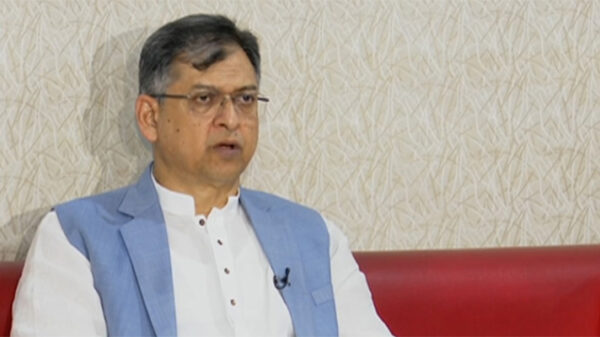A Correspondent:
Chairman (additional charge) of the University Grants Commission, Prof. Muhammad Alamgir, has un-derscored the higher education regulator’s commitment to quality, emphasizing that no exemptions would be granted for irregularities in private or public universities.
Dr Alamgir highlighted the imperative of maintaining an unwavering focus on quality education without any interference.
“Those who do not value education may seek alternative paths. When a university opens, some may not comprehend that it is non profitable. They may have different intentions, perhaps business-related. We maintain strictness in such cases. Consequently, we often face challenges in collaborating with private universities. However, the situation has significantly improved since before,” he said.
Any educational complaints, he noted, would be promptly communicated to the Ministry of Education for resolution.
When asked about the lack of quality teachers in universities or higher education, he said, there is no quality mechanism for producing teachers in our country. Many prominent universities do not even con-fer doctorate degrees, he pointed out.
Expressing his worry about the brain drain issue, Alamgir noted, “Students who pursue higher education abroad no longer return. This contributes to a crisis in both public and private universities.”
He attributed this trend to the inadequate salary structure for teachers in Bangladesh, significantly lower than neighboring South Asian countries.
“The salary structure for teachers in our country is inadequate. When compared to neighboring countries in South Asia, the remuneration for university teachers in our country is very low. I am concerned about these issues,” he said.
“If we aspire to provide quality education, we need resources. In a university, the primary resources are teachers and students. There is no alternative to quality teachers if we desire quality education.”
Expressing his worry about the brain drain issue, Alamgir noted that students pursuing higher education abroad were not returning, leading to a crisis in both public and private universities.
To address these challenges, Alamgir stressed the necessity of resources, identifying teachers and students as the primary assets for providing quality education. He said that quality teachers were indispensable for achieving educational excellence.
“If we aspire to provide quality education, we need resources. In a university, the primary resources are teachers and students. There is no alternative to quality teachers if we want quality education,” he said.
When questioned about UGC’s efforts to appoint quality teachers, Prof. Alamgir acknowledged the diffi-culties in ensuring quality education.
“Ensuring quality education in universities is challenging. Universities may claim that they are not at-tracting qualified teachers due to insufficient advertising or budget constraints. They might express their inability to offer higher salaries. In such cases, universities might request the cessation of their pro-grams,” he said.
The UGC Chairman also shed light on the lack of standardized criteria for quality education in the coun-try, stating that there were no specific benchmarks for universities to meet:
“We lack standardized criteria for quality. There are no specific benchmarks that universities must meet. If a university performs well, positive outcomes will follow; otherwise, appropriate actions will be tak-en. Unfortunately, such standards do not exist in our country.”
He said that a training academy, funded by the Government of Bangladesh and the World Bank, would be launched in early 2024. The initiative, with a total cost of around 4 thousand crores, aims to train all university teachers and provide a four-month training program for new educators.
“The project has been approved, and a GEO will be issued by the Ministry of Education to commence the work. We expect the issuance of the GEO next week,” he said.
Turning to allegations of irregularities in private universities, Prof. Alamgir detailed UGC’s efforts to bring them under a regulatory framework. He highlighted the government’s initiative to amend the Pri-vate Universities Act 2010, emphasizing the need for service rules in every private university, which must be universally implemented.
Regarding allegations of irregularities in private universities, Professor Alamgir discussed measures tak-en to ensure compliance with the law. He mentioned that the UGC is working to bring private universi-ties under a regulatory framework, and the government is initiating amendments to the Private Universi-ties Act 2010.
He stated, “Every private university should have service rules, and these rules should be universally im-plemented. Currently, we are not approving new departments beyond capacity. Universities must demon-strate their capabilities in terms of resources, space, and laboratories before approval for new depart-ments is granted.”
“We enforce strict limitations on the number of students admitted to universities. For science, engineer-ing, and technology programs, the maximum is 40 students, and for social science programs, it is limited to 50-60 students. This is the maximum; it can be less but not more,” he said.
Addressing the delay in private universities moving to permanent campuses, Alamgir expressed the UGC’s reluctance.
“We are somewhat hesitant about universities transitioning to permanent campuses because, according to the current law, they must move within 12 years. If any university fails to comply, they are not permit-ted to initiate new education programs, increase the number of seats, or receive star ratings,” he said.










































